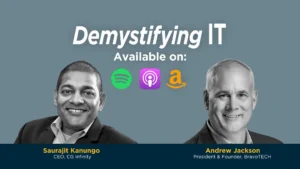Navigating AI Malpractice in Healthcare: Balancing Revolutionary Benefits and Growing Concerns
As the saying goes, “To err is human, to really foul things up requires a computer.” This proverb rings truer than ever in the age of AI healthcare, where the potential for mistakes is groundbreaking and concerning. Since the rise of ChatGPT and similar AI platforms, healthcare has been buzzing with the potential of AI to revolutionize diagnoses, cut waiting times, and provide remote consultations. But with great power comes great responsibility, and cases of AI misdiagnoses and improper medical advice have already raised red flags. Are we truly prepared to entrust our health to AI, and if things go south, who will be held accountable for AI malpractice in healthcare?
While AI innovations like ChatGPT and Google’s chatbot-integrated search feature hold promise for improving healthcare, concerns around the quality and reliability of AI-generated medical advice are growing. A notable example was when Jeremy Faust, an emergency medicine physician, tested ChatGPT and discovered that the sources cited by the AI did not even exist. Calls for the implementation of minimum standards for AI technologies in healthcare are becoming louder, but the question of responsibility for AI malpractice in healthcare remains unanswered.
Liudmila Schafer, MD, FAC, Medical Oncologist at The Doctor Connect, delves into the double-edged sword of AI in healthcare, emphasizing the importance of striking a balance between its potential benefits and pitfalls.
Liudmila’s Thoughts:
“Artificial Intelligence has been invading the healthcare system for a while. AI has the potential to be both helpful and dangerous, and it depends on us how we develop, deploy and regulate it.
On the bright side, AI in healthcare can be helpful. For example, we could use artificial intelligence tools and combine the skills of health and wellness coaches and motivational speakers with healthcare professionals such as board-certified physicians, nurses, and other healthcare workers to facilitate better coordination and collaboration in patient care. In the US, a federal rule was implemented to mandate Clinical notes to be shared with patients.
In many circumstances, patients can’t even understand the doctor’s notes, and by reading them, patients get nervous and anxious and put themselves at risk trying to figure out what to do. AI could help to convert complex medical terminology to layman terminology. But patients are still reluctant to trust AI and want explanations from human doctors.
Artificial intelligence also could help to improve the interpretation and diagnosis of medical images. How can AI be dangerous? Currently, physicians and healthcare practitioners spend a significant amount of time dealing with technology. It requires up to 50 computer clicks necessary to place a single treatment order for one patient.
It increases the time the physicians spend with the computer and decreases the time with the patients, which decreases patient satisfaction and increased physician burnout.
AI systems may store sensitive patient data, which can be vulnerable to hacking or other security bridges. AI can be biased, resulting in patients being misdiagnosed, and receiving less effective, or even ineffective treatment advice.
Who will be responsible? Even the AI system that is used makes a mistake and inappropriate diagnosis and treatment advice. Who will be responsible if ChatGPT delivers information that is malpractice, and who will correct it? It is essential to carefully consider the risks and benefits of AI in healthcare to ensure that AI is used ethically and responsibly to protect our safety and privacy.
Stay tuned as we discuss more on AI breakthroughs in the healthcare industry.”
Article written by: Azam Saghir









